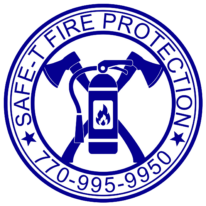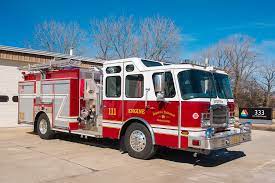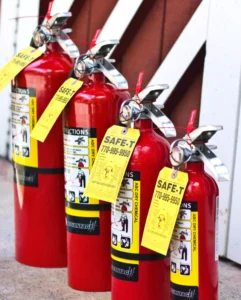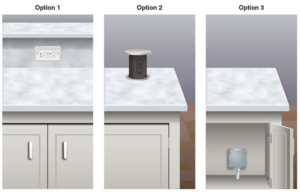What is Fire Protection Week?
October 3rd-9th is dedicated to fire safety awareness. Established in 1922, fire prevention week was created in memory of the Great Chicago Fire in 1871. This tragic fire killed over 250 people and burned more than 2000 acres. This major fire crisis altered the way that public officials viewed fire safety and the future of preventing fire emergencies. The first national fire prevention day was established by President Woodrow Wilson in 1920. Two years later, fire prevention week began to be observed, marking the longest-running safety observance nationally recognized.
The National Fire Protection Association (NFPA) has released their campaign for 2021’s Fire Safety Month: “Learn The Sounds of Fire Safety.” This includes recognizing products that aid in fire safety. Installing trusted smoke and carbon monoxide alarms can prevent a fire and protect your home and family members.

Fire Safety Tips At Home
- Functional Smoke Alarms: You need to ensure that your smoke detectors are functional throughout your entire house. Many times, batteries will go out or the detector may die of old age, which can easily escape your notice. We recommend checking your smoke alarms once a month. Both smoke and CO alarms should be on every level of the home, including the basement, and inside and outside each bedroom.
- Fire Extinguishers: Fire extinguishers should always be kept in the kitchen and garage. Make sure that your fire extinguishers are operational as well. Teach your children how to use fire extinguishers in case of an emergency. Remember the acronym PASS: Pull the pin, Aim at the base of the fire, Squeeze the lever, and Sweep from side to side.
- Clean Your House: It’s important to eliminate clutter throughout your home. In the event of a fire, stuff around the house can act as fuel and allow the fire to spread quickly. It can also restrict your access to emergency equipment and exits.
- Chemical Safety: For cleaning chemicals, read the warning labels and determine how to store them. Many chemicals are fire hazards and should be stored in a certain type of environment.
- Have an Emergency Plan:
- Make sure your family knows where the exits and fire extinguishers are.
- Never open doors that are hot to the touch.
- Teach your kids to stop, drop, and roll if their clothes catch on fire.
- Designate a meeting place outside.
- Tell your kids to never re-enter a burning building.
Did You Know?
- The U.S. has one of the highest fire death rates. In 1997, the fire death rate was 15.2 deaths per million population.
- 3 out of 5 home fire deaths arise from fires in homes with no working smoke alarms.
- Fire is the third leading cause of accidental deaths at home.
- Property loss due to fires is estimated at around $8.5 billion annually.
- Unattended cooking is the leading cause of home fires in the United States.
- Smoking is the leading cause of fire deaths.
- Heating is the second cause of residential fires, tying with arson as the second cause of fire deaths.
- In commercial businesses, arson is a major cause of death and injuries.
- Senior citizens and children under five are at the greatest risk of death by fire, at double the risk of the average population.
- Carbon monoxide is the number one cause of poisoning in the United States.
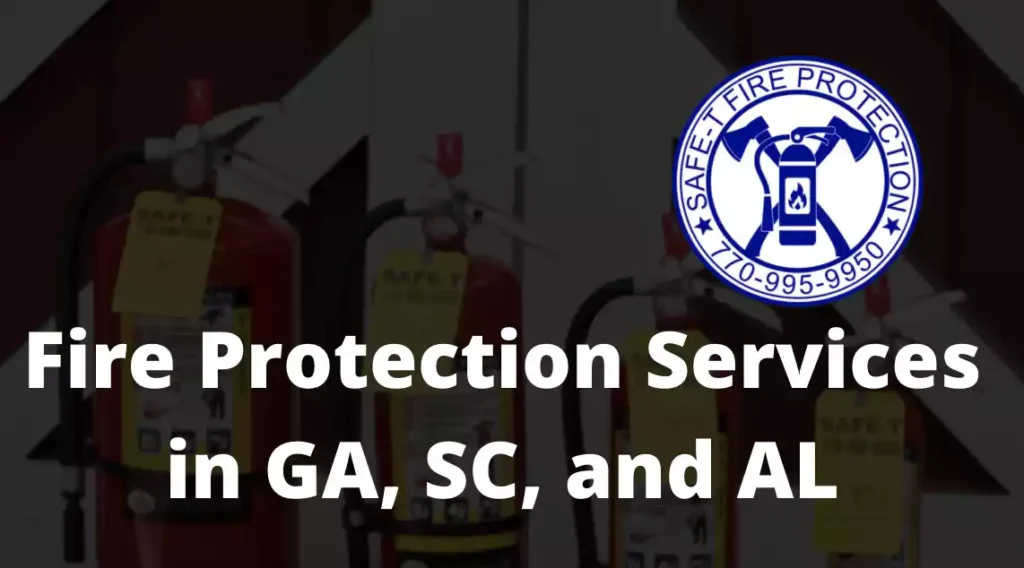
Fire Safety Tips at Work
- Designate Smoking Areas: Only allow smoking in certain areas and provide ways for extinguishing smoking materials. Enforce this rule in your office, ensuring that people aren’t smoking haphazardly and casually throwing their cigarette trash anywhere.
- Fire Extinguishers: It’s important that your business maintains the appropriate type and number of fire extinguishers. There are monthly and annual inspections you should schedule that will inspect fire extinguishers to ensure they are operational. Train your employees on how to use them. Also, make sure to not block fire extinguishers with equipment. In addition to fire extinguishers, ensure that you have functioning smoke and CO detectors in your office.
- Chemical Safety: If you use chemicals in your business, store them safely and ensure storage areas have proper ventilation. For example, there are flammable storage cabinets, which can be a good place to store these materials.
- Waste Storage: Pay attention to where your flammable materials are thrown out, as they could be a risk for a fire emergency. Ensure you have proper trash procedures for types of flammable waste.
- Exits: Make sure you have emergency exits labeled and easily accessible. These areas need to be kept clean and well-lit. Also make sure to keep your office spaces clean and practice good housekeeping, so that in the event of a fire, employees can easily access the exit.
- Contact Information: Ensure that you have emergency contact phone numbers in case of an emergency.
Fire Services Near You
Safe-T Fire Protection is your local, family-owned fire protection company ready to help you understand fire safety. Our fire protection services are designed to keep your home and business safe. If you have any questions, contact us today! We serve Buford, GA, and the surrounding areas.
